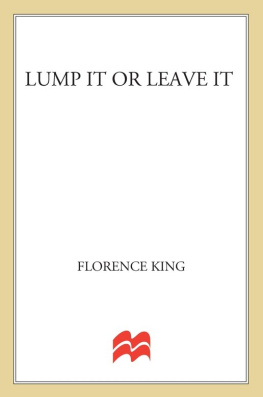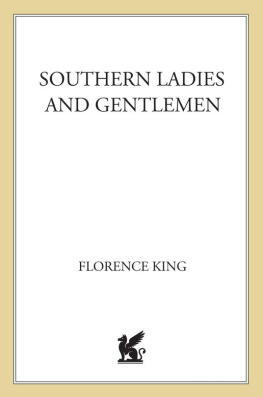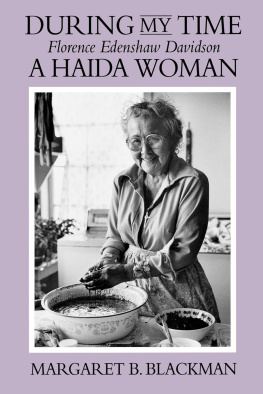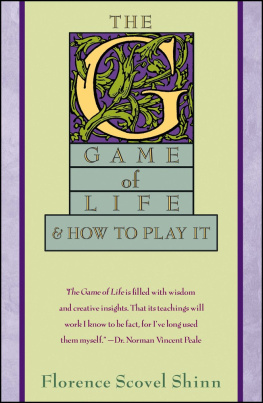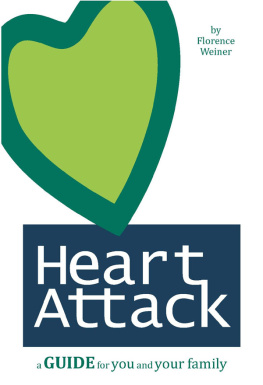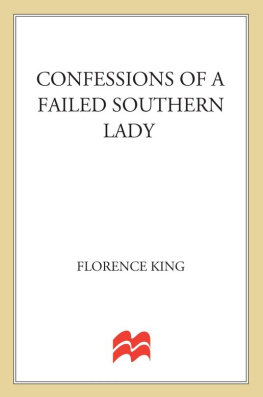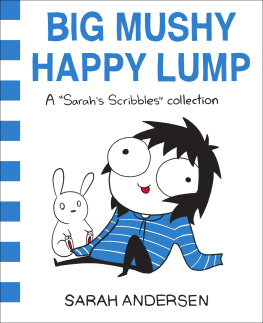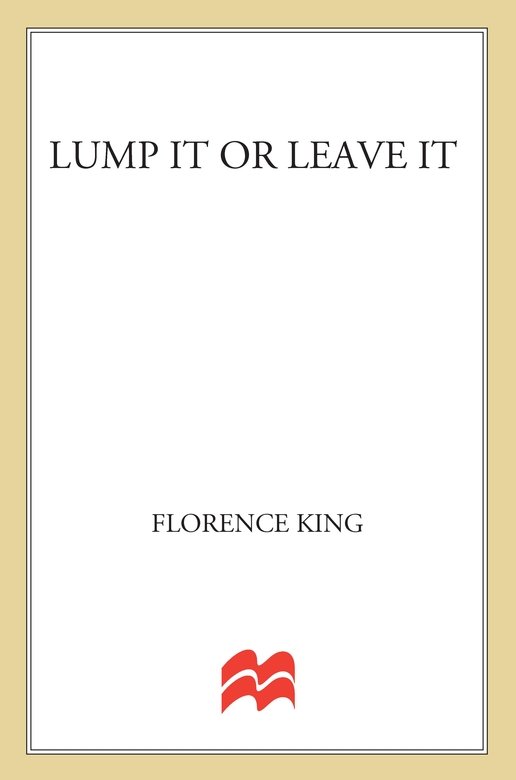Lears is the magazine For The Woman Who Wasnt Born Yesterday.
Shakespearean buffs who think it is named for the Lear who said, Let it stamp wrinkles in her brow of youth, with cadent tears fret channels in her cheeks, must think again. Lears is the brainchild of sixtyish Frances Lear, the former Mrs. Norman Lear, who decided to build the confidence of older women by giving them their own magazine and naming it after the man who paid her $112 million for divorcing him.
Considering the way they edited my copy, they ought to call themselves The Battle-Ax. As far as I can tell, they do nothing for older women unless you want to count the ten years they took off my life.
Writing for womens magazines is a matter of skirting their various taboos. Pedophobia at Family Circle and Lesbianism at Cosmopolitan make sense, but the greattaboo at Lears, according to one of their many former editors, is the word menopause.
A shame, because I would have loved to write an article on it for them.
My thoughts on the menopause do not go over well with the kind of middle-aged women who say, Youre only as old as you feel, and then give a pert toss of the head. These are the women who buy the most surgical collars. They are also the women who buy the most plastic surgery; I have a professional acquaintance whose recent eyelid job has left her with a permanent expression of such poleaxed astonishment that she looks at all times as if she had just read one of my books.
About the most these women will say on the forbidden subject is a wistful murmur of I miss my periods. If you reply, as I did, Thats like missing the Spanish Inquisition, your name will be entered in the Index of Insensitivity under Twatist. Between the upbeat seventies psychobabble about passages and feminisms attempt to reduce menopause to a sheaf of mendacious stereotypes invented by the patriarchy, many women come so close to claiming that there is no such thing as menopause that they come very close to sounding like Mrs. Eddy.
I grew up hearing a very different sort of wishful thinking. My grandmothers disquisition on the menopause always began with a doleful sigh. Ahhh! That time of life . Its got to come to all of us someday.
In the South of my childhood, no woman could weather the Change completely unscathed; it was femininitys Appomattox and you had to milk it for every possible drop of theater.
A definite menopause class system existed. The Brahmins, of course, were the women who went hopelessly, gothically, permanently insane. In the next caste down were women with such severe female trouble thattheir parts fell out like gifts from a piata, known as she felt a whoosh ! and then it just went plop ! The last of the Big Three patricians, officially disapproved of but providing a perfect plum of gossip, was the woman who developed another form of looseness known as she likes men.
The pelvic bourgeoisie were the women who did something peculiar, a catch-all phrase that might refer to a woman who became a spit-and-polish housekeeper after years of sloth; or one who took to shoplifting inane items like pen wipers; or one who suddenly began wearing white anklets (Granny: whoopee socks) with black patent leather high heels.
The working class had the sleeping Change, an extreme form of fatigue manifested by a neighbor of Grannys, who never did see the end of The Sheik despite ten trips to the theater. The phlegmatic quality of the sleeping Change made it dclass because menopausal women are supposed to be nervous. It always provoked the disappointed assessment, She slept right through it, accompanied by a ski-slope gesture going off into infinity where, the speaker left no doubt, the calm one deserved to be banished.
The untouchables were the women who had no trouble whatsoever, known contemptuously as She sailed right through it.
I started looking forward to the menopause at the age of twelve due to what male gynecologists call discomfortwracking, knotting, waves of cramps and vomiting that lasted the whole of the first day and left me wrung out for most of the second. In high school I missed the annual French contest because of cramps. In college, as soon as the exam schedule was posted, I checked the dates in abject fear that one or more of mine would fall on Der Tag. Gradually my whole concept of time changed until I thought of a month ashaving twenty-five days of humanness and five others when I might just as well have been an animal in a steel trap. When I heard other women say, My periods are what make me a woman, I always thought, My periods are what keep me from being myself.
None of the doctors I consulted could find anything wrong with me. I thought I might have what Granny & Company called a tilted womb but my pelvis was normal in every way. Finally, at the age of thirty, I decided to try to get a partial hysterectomy. I picked that particular cut-off age because I had heard that a woman of thirty who had three children could have her tubes tied at her own request on the assumption that her whelping days were over (this was 1966). Since I did not intend to have any children at all, I figured that some version of the same rule would apply to me. (I was working for the Raleigh News and Observer and writing 30 at the end of copy, so it made a certain sense.)
One day while editing canned features I came across one about a contraceptive operation in which the lining of the uterusthe endometriumis removed via the vagina. Without the porous lining, said the article, menstrual blood had no place to collect; the woman would stop menstruating, and her eggs, if fertilized, would simply slide down the slippery slope and be passed off unnoticed.
It sounded perfect. No surgery. Merely a matter of what Granny, in the fruitiness of her idiom, would have called: They just reach right up and pull it right out whisk !
Feminists are right and wrong about male gynecologists. Yes, they are supercilious bastards; no, they are not swept by irresistible forces of sadism and greed at the thought of performing unnecessary operations on female organsif they were, I would have gotten what I wanted.
The first one listened to my story, his mouth twitching in amusement, then patted my hand and said, Youll change your mind when you hold your first baby in your arms.
The second one threw me out of his office.
We have ways of curing monthly discomfort with medication! If you had a sore toe, would you want to get it cut off?
Sure, if it was sore enough, I said. You can live with nine toes unless youre a ballet dancer, and Im not.
I hope you dont have children, he said, his voice shaking. Id hate to see what theyd turn out to be like.
A few weeks later while editing the social notes, I saw his daughters name in a ballet recital list. Doubtless he was as sick of dying swans as I was of twat artists. I gave up the idea of having my endometrium ripped untimely from my womb and went on menstruating.
I began missing periods at forty-six and had my last one four years ago at fifty. Since then, I have been living proof of Simone de Beauvoirs assessment of menopause in The Second Sex:
In many, a new endocrine balance becomes established. Woman is now delivered from the servitude imposed by her female nature, but she is not to be likened to a eunuch, for her vitality is unimpaired. And what is more, she is no longer the prey of overwhelming forces; she is herself, she and her body are one. It is sometimes said that women of a certain age constitute a third sex; and, in truth, while they are not males, they are no longer females. Often, indeed, this release from female physiology is expressed in a health, a balance, a vigor that they lacked before.

